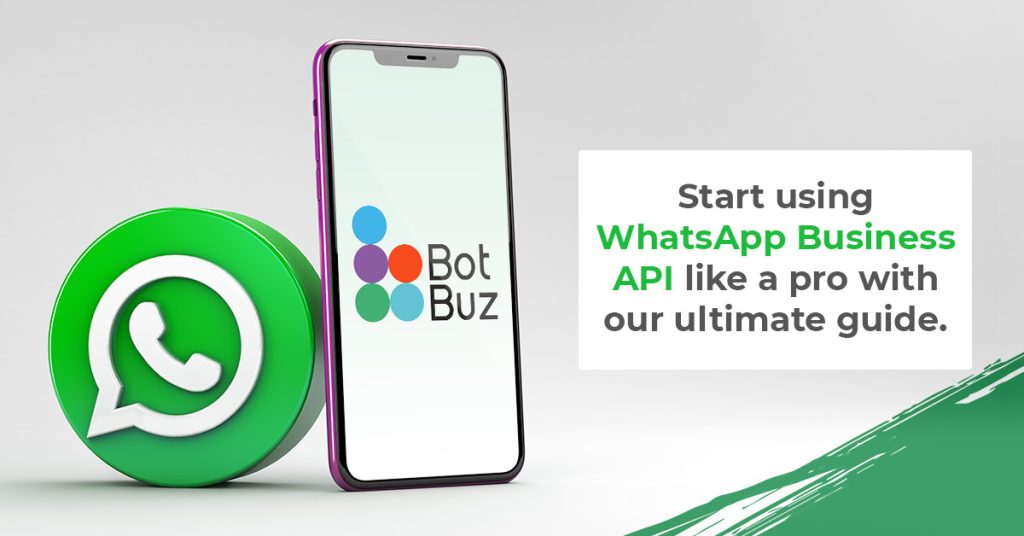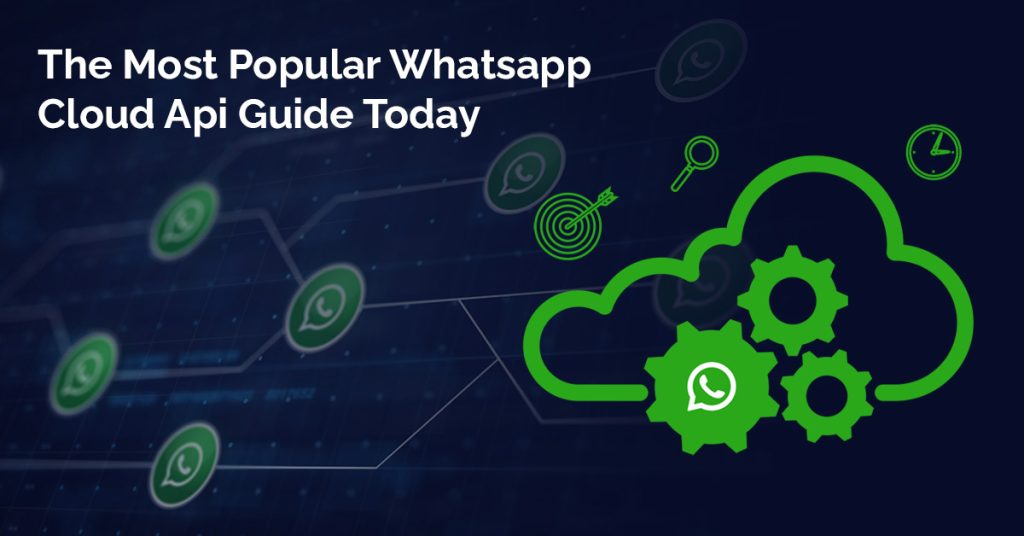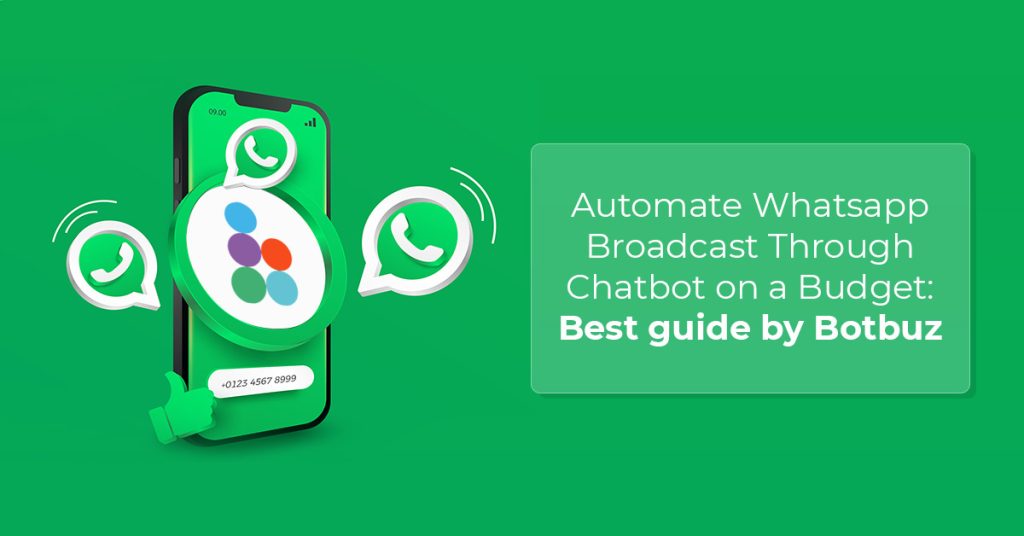- WhatsApp Business API and its Growing Role in Business Communication :
- What is WhatsApp Business API Calling Beta Update?
- How Does WhatsApp Business API Calling Work?
- How to Get Started with the Calling Beta Update :
- Future of WhatsApp Business API Calling :
- Using WhatsApp Business API Calling with Botbuz :
- WhatsApp Business Calling API FAQ :
WhatsApp Business API and its Growing Role in Business Communication :
The WhatsApp Business API is a powerful tool for businesses. It helps to communicate with customers on a large scale. The new Calling Beta update now lets businesses make and receive voice calls on the platform, alongside their messaging.
This is a significant development. It allows for a more comprehensive and personal customer experience. It helps businesses to resolve complex issues faster & close sales more effectively. It also streamlines their communication by keeping all interactions, both calls and messages in a single place. The feature also boosts brand trust. Thus, allowing voice calls from verified business profiles.
The WhatsApp Business API is a tool for large-scale business communication. It is getting a major upgrade with its new Calling Beta. This feature adds Voice-over-IP (VoIP) calls directly into the platform. It allows businesses to seamlessly switch between messaging and voice. This matters for businesses because it enhances the customer experience. Also enabling faster, more personal support and sales conversations. It also improves operational efficiency by keeping a full history of all interactions in one place. The use of verified profiles on voice calls helps to build customer trust and brand credibility.
What is WhatsApp Business API Calling Beta Update?
The WhatsApp Business API Calling Beta is a new feature. It adds voice calling to the existing messaging platform. This allows businesses to receive calls from customers who click a “call” button. Also it makes calls to customers who have given permission. Unlike messaging, which is for scalable, asynchronous communication like order updates and automated responses, calling is for real-time, personal conversations, such as complex customer support or sales consultations. This beta feature is currently being rolled out to select partners and is not yet universally available. Also some countries have limitations on business-initiated calls.
Key Features of the Calling Beta Update :
The WhatsApp Business API Calling Beta update introduces key features. It helps to enhance business communication. Primarily, it adds secure, end-to-end encrypted voice calling. Also it allows businesses to both receive calls from and initiate calls to customers directly on WhatsApp, all via VoIP. This new functionality helps for seamless integration with existing customer service & CRM platforms. It gives agents a unified view of a customer’s entire conversation history, including both messages & calls. Although the feature is in beta and not yet fully public. It includes call analytics and reporting. Thus, enabling businesses to track performance metrics and optimize their communication strategies.
Why It Matters : Benefits for Businesses and Customers
The WhatsApp Business API Calling Beta provides several key benefits for both businesses & their customers. The update allows companies to offer real-time support. It improves customer engagement by adding a voice option to the platform. It’s also a cost-effective alternative to traditional call centers. It uses Voice-over-IP and allows for more efficient resource allocation. By using a verified WhatsApp profile for calls, businesses can build greater trust with their customers. Also the seamless integration of calls & messages leads to faster issue resolution & more personalized service.
How Does WhatsApp Business API Calling Work?
The WhatsApp Business API Calling feature is a beta update. It enables businesses to handle voice calls directly on the platform. To enable this, a company must partner with a Meta-approved Business Solution Provider. It can set up their API account with the necessary permissions. The system works by integrating with existing customer service platforms through webhooks. It allows a business to route incoming calls & provides agents with a customer’s full chat history before they even answer.
While in beta, the feature has some limitations, such as being primarily for mobile devices and lacking video call support. Business-initiated calls are also restricted in certain countries and require customer consent. In the future, a full rollout is expected to remove these limitations. Thus, introducing video calling and more advanced AI-powered routing.
Use Cases of WhatsApp Business API Calling :
The WhatsApp Business API Calling beta introduces a variety of new use cases. It is for businesses to enhance customer interactions. For customer service, it allows companies to quickly handle complex complaints through a live voice call instead of slow text exchanges. For services that require scheduling, like appointments, a voice call can be a more personal and effective way to confirm or reschedule, reducing no-shows.
E-commerce businesses can use it for real-time order troubleshooting. It helps to guide a customer through a high-value purchase. B2B companies can utilize it for quick discussions, replacing traditional phone calls. The feature is also highly beneficial for sectors like healthcare. Thus, enabling secure & confidential patient consultations & improving patient care and data security.
How to Get Started with the Calling Beta Update :
To begin using the WhatsApp Business API Calling beta, a company must first partner with a Meta-approved Business Solution Provider. It helps to gain access, as it’s not publicly available yet. The company also needs a verified Facebook Business Manager account. Also it needs a dedicated phone number for the API. The technical setup involves configuring webhooks to manage call events. It also integrates the API with their existing CRM or customer service systems.
For effective use, businesses should always get customer consent for calls. It offers easy opt-out options, and maintains a professional profile. They should also use call analytics to optimize their strategy & use an IVR for routing calls. It also reserves calls for complex issues while using messaging for simple tasks.
Future of WhatsApp Business API Calling :
The future of WhatsApp Business API Calling feature is a key part of business communication. After its beta phase, a full public rollout is anticipated. It will likely bring video calling and other enhanced features. A major trend will be the integration of voice calls with AI-powered chatbots. It enables businesses to automate initial voice queries before handing them off to human agents. This will make voice a critical part of a business’s omnichannel strategy. It provides a personal touch that complements text messaging. Industries like finance and healthcare are early adopters. It has the need for secure, personal interactions.
Using WhatsApp Business API Calling with Botbuz :
Botbuz simplifies using the WhatsApp Business API for companies without technical expertise. It allows businesses to combine automated chatbot workflows with real-time human interaction. For example, a chatbot can answer a customer’s basic questions. If the issue is too complex, seamlessly transfer the conversation to a human agent who can take a voice call directly within the same chat. This blend of automation and human support, all on a single platform. It helps businesses improve customer satisfaction, increase sales, and provide more personalized service.
WhatsApp Business Calling API FAQ :
- Who can access the beta update?
Access to the beta is limited. It requires a business to partner with a Meta-approved Business Solution Provider (BSP). The business also needs a verified Facebook Business Manager account. It must be in a specific messaging tier.
- Is the feature available worldwide?
The feature is not yet fully global. The user-initiated calls are available in most countries where the WhatsApp Business Platform operates. Business-initiated calls are currently restricted in specific regions like the U.S., Canada & Nigeria.
- Can businesses record or track calls?
WhatsApp itself does not offer native call recording. However, it does provide call analytics. Some Business Solution Providers may offer call recording as a separate service. It’s important to be aware of & comply with local laws and regulations regarding call consent.
- How secure are API calls?
Calls made through the API are secured with end-to-end encryption. It is similar to regular WhatsApp calls. This means the content is protected from third-party access. However, once a call is received by the business, its security is then managed by that business’s own internal security policies & practices.
- What’s the difference between chat support and call support in the API?
Chat support is ideal for a high volume of general or automated inquiries. It is a scalable and asynchronous form of communication. Call support is for real-time & synchronous conversations. It is best suited for complex issues or sales discussions that require immediate, personal interaction. The API’s key benefit is that it unifies both channels within a single conversation thread.
- What is the pricing model for WhatsApp Business API calls?
The pricing for WhatsApp Business API calls is distinct from its message-based pricing. It is a usage-based model, and charges can vary depending on several factors. The user-initiated (inbound) calls from a customer to a business are often free. Businesses are charged for calls they initiate (outbound). The cost for these outbound calls is typically determined by the call’s duration, the country of the person being called, and the total volume of calls made in a given period. Businesses should consult with their Business Solution Provider (BSP) for specific rate cards. Also the pricing can differ between regions and providers.
Conclusion :
The WhatsApp Business API Calling update is a game-changer. It lets businesses add voice calls to their customer communication. This allows for faster & more personal support. Thus, blending the convenience of text with real-time conversations. For businesses, using a service like Botbuz is key, as it simplifies the technical setup. Botbuz helps combine automated chatbot replies with seamless transfers to live voice calls. It ensures a smooth and efficient customer experience. This hybrid model helps companies provide top-tier service by using automation for simple tasks and human interaction for complex ones, all on one platform.




